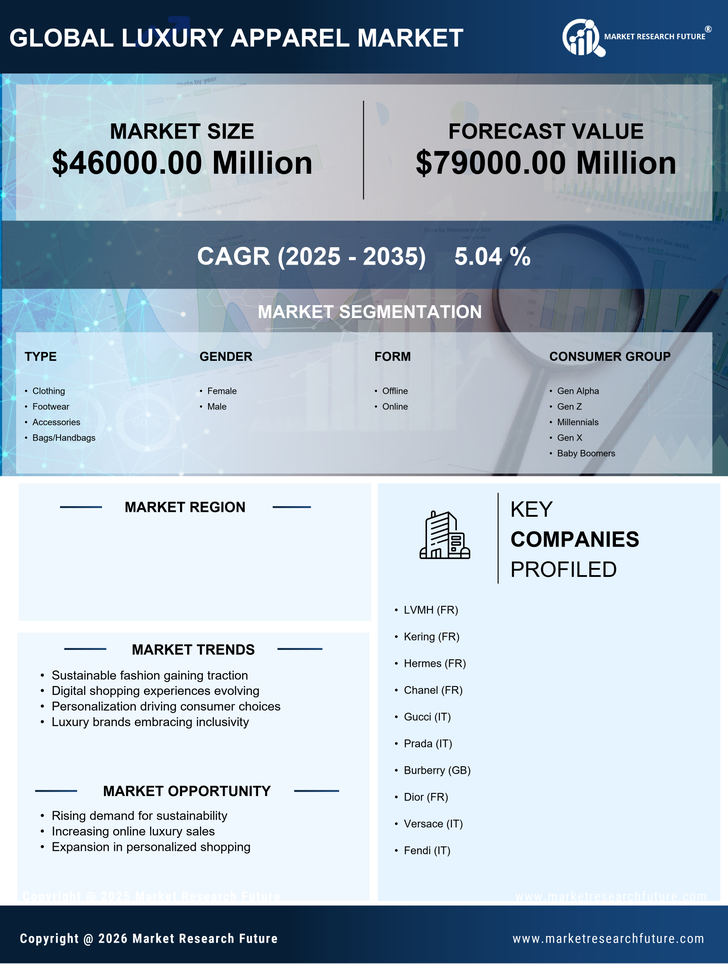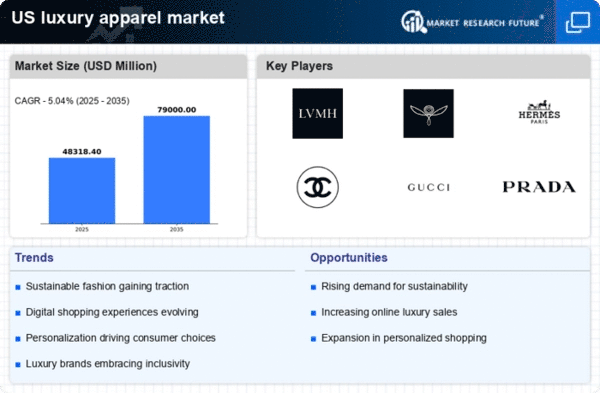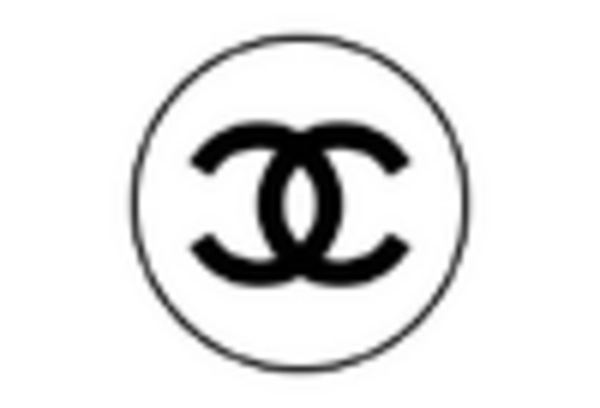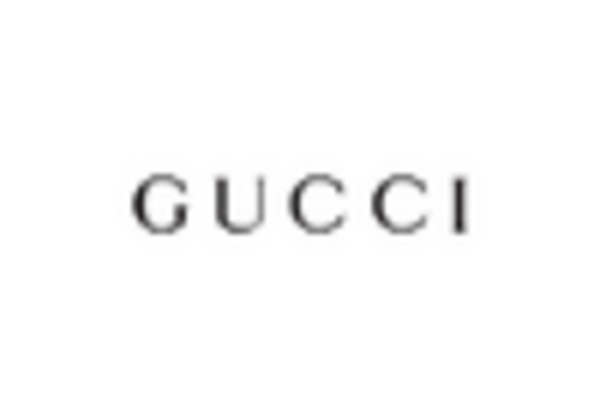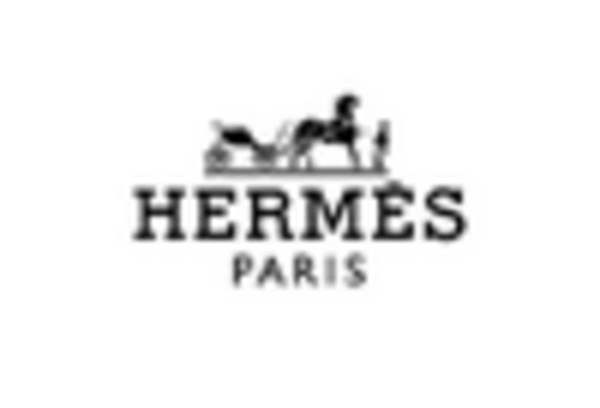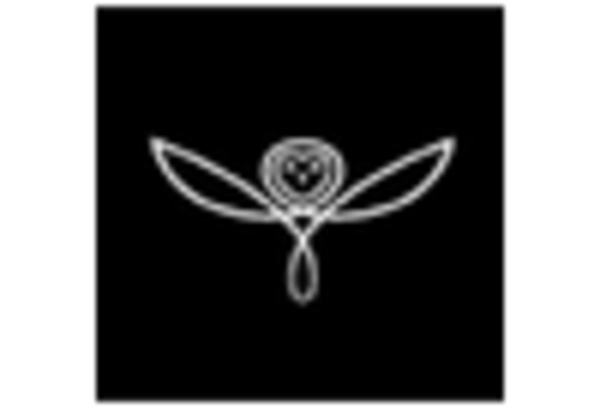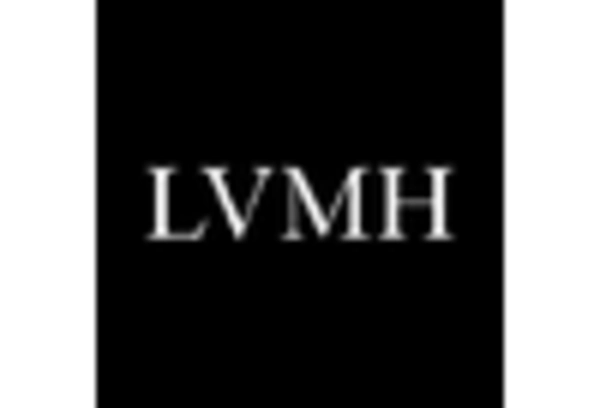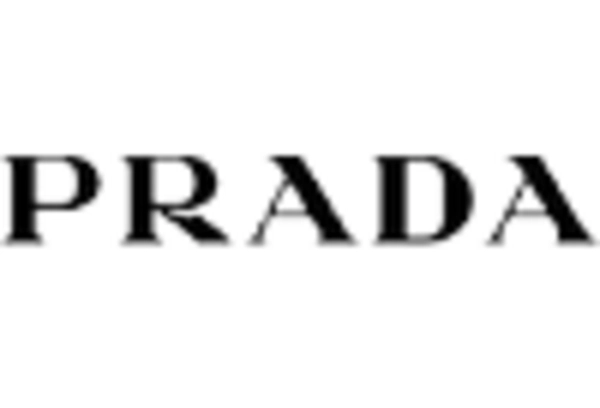Rising Disposable Income
The luxury apparel market in the US is experiencing growth driven by an increase in disposable income among consumers. As individuals have more financial flexibility, they are more inclined to invest in high-end clothing and accessories. Recent data indicates that the average household income has risen by approximately 5% annually, allowing for greater spending on luxury goods. This trend is particularly evident among millennials and Gen Z consumers, who prioritize quality and brand prestige. The luxury apparel market benefits from this demographic shift, as younger consumers are increasingly willing to pay a premium for exclusive and high-quality products. Furthermore, the expansion of e-commerce platforms has made luxury items more accessible, further fueling demand. As disposable income continues to rise, the luxury apparel market is likely to see sustained growth in the coming years.
Influence of Social Media
The luxury apparel market is significantly impacted by the pervasive influence of social media platforms. Brands leverage these platforms to engage with consumers, showcase their products, and build brand loyalty. Influencers and celebrities play a crucial role in shaping consumer perceptions and driving purchasing decisions. Recent studies suggest that approximately 70% of consumers are influenced by social media when making luxury purchases. This trend has led to an increase in online sales, with the luxury apparel market witnessing a surge in e-commerce transactions. Additionally, social media allows brands to create targeted marketing campaigns, reaching specific demographics effectively. As the digital landscape continues to evolve, the luxury apparel market must adapt to these changes to maintain relevance and appeal to a tech-savvy consumer base.
Expansion of Online Retail
The luxury apparel market is undergoing a transformation due to the rapid expansion of online retail. E-commerce has become a vital channel for luxury brands, allowing them to reach a broader audience and enhance customer convenience. Recent statistics reveal that online sales in the luxury apparel market have increased by over 20% in the past year alone. This growth is attributed to the rise of mobile shopping and improved online shopping experiences. Brands are investing in user-friendly websites and personalized online services to attract consumers. Additionally, the integration of augmented reality and virtual fitting rooms is enhancing the online shopping experience, making it more interactive. As online retail continues to expand, the luxury apparel market is likely to see a shift in consumer purchasing behavior, with more individuals opting for online purchases over traditional retail.
Growing Demand for Ethical Fashion
The luxury apparel market is increasingly responding to consumer demand for ethical and sustainable fashion. As awareness of environmental issues rises, consumers are more inclined to support brands that prioritize ethical practices. Research indicates that around 60% of luxury consumers are willing to pay more for sustainable products. This shift is prompting luxury brands to adopt sustainable sourcing, production methods, and transparent supply chains. The luxury apparel market is witnessing a rise in brands that emphasize eco-friendly materials and ethical labor practices, appealing to a conscientious consumer base. Furthermore, collaborations between luxury brands and environmental organizations are becoming more common, enhancing brand credibility. As the demand for ethical fashion continues to grow, the luxury apparel market is likely to evolve, integrating sustainability into its core business strategies.
Cultural Shifts Towards Luxury Experiences
The luxury apparel market is influenced by cultural shifts that prioritize experiences over material possessions. Consumers are increasingly valuing unique experiences, leading to a change in how luxury is perceived. This trend is evident in the rise of experiential luxury, where brands focus on creating memorable experiences for their customers. Recent surveys indicate that approximately 50% of luxury consumers prefer spending on experiences rather than physical goods. This shift is prompting luxury brands to innovate by offering exclusive events, personalized services, and immersive brand experiences. The luxury apparel market is adapting to this trend by integrating experiential elements into their offerings, such as fashion shows and private shopping events. As the demand for experiential luxury continues to grow, the luxury apparel market is likely to evolve, focusing on creating lasting memories for consumers.
